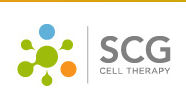预约演示
更新于:2025-05-07

SCG Cell Therapy Pte. Ltd.
更新于:2025-05-07
概览
标签
肿瘤
消化系统疾病
感染
TCR-T细胞疗法
T细胞疗法
双特异性T细胞结合器
疾病领域得分
一眼洞穿机构专注的疾病领域
暂无数据
技术平台
公司药物应用最多的技术
暂无数据
靶点
公司最常开发的靶点
暂无数据
| 排名前五的药物类型 | 数量 |
|---|---|
| TCR-T细胞疗法 | 4 |
| 双特异性T细胞结合器 | 1 |
| T细胞疗法 | 1 |
| 诱导性多能干细胞 | 1 |
| CAR-T | 1 |
| 排名前五的靶点 | 数量 |
|---|---|
| RCVRN | 1 |
| TCR(T细胞受体复合体) | 1 |
| HPV E7(HPV病毒E7蛋白) | 1 |
| CD3 x HBsAg | 1 |
| EBV蛋白 | 1 |
关联
12
项与 SCG Cell Therapy Pte. Ltd. 相关的药物靶点 |
作用机制 E7抑制剂 [+1] |
在研适应症 |
非在研适应症- |
最高研发阶段临床1/2期 |
首次获批国家/地区- |
首次获批日期- |
靶点 |
作用机制 HBsAg抑制剂 |
原研机构 |
非在研适应症- |
最高研发阶段临床1/2期 |
首次获批国家/地区- |
首次获批日期- |
作用机制 CD3刺激剂 [+1] |
在研适应症 |
非在研适应症- |
最高研发阶段临床申请 |
首次获批国家/地区- |
首次获批日期- |
5
项与 SCG Cell Therapy Pte. Ltd. 相关的临床试验NCT06505551
A Phase 1/2 Open Label, Single Arm, Multicenter Study to Evaluate the Safety and Preliminary Eficacy of Autologous SCG142 T Cell Receptor (TCR) T Cells in Patients With Advanced or Metastatic HPV16- or HPV52-positive Carcinomas
This is a phase 1/2, open-label, single arm, multicenter study in patients with advanced or metastatic HPV16- or HPV52-positive carcinomas who have progressed after at least one line of systemic therapy, including but not limited to combination chemotherapy and/or combination chemo-immunotherapy
开始日期2024-10-01 |
申办/合作机构 |
CTR20222173
SCG101治疗乙型肝炎病毒相关肝细胞癌的I期临床研究
主要研究目的
评估SCG101治疗乙型肝炎病毒相关肝细胞癌(HBV-HCC)的安全性、耐受性及剂量限制性毒性(dose-limiting toxicity, DLT),确定最大耐受剂量(MTD)或II期推荐剂量(RP2D)。
次要研究目的
评估SCG101治疗HBV-HCC的初步临床疗效;
评估SCG101的抗病毒活性,以及对肝功能和血清肿瘤标志物甲胎蛋白(AFP)水平的影响;
评估SCG101静脉输注前、后药代动力学特征(病毒载体拷贝数(VCN))的变化。
探索性目的
评估SCG101静脉输注前、后外周血SCG101浓度的变化;
评估SCG101静脉输注前、后相关细胞因子的变化;
评估SCG101静脉输注前、后免疫特征的变化。
开始日期2022-11-09 |
申办/合作机构 |
NCT05417932
A Phase 1/ 2a, Multicenter Study of SCG101 in the Treatment of Subjects With Hepatitis B Virus-Related Hepatocellular Carcinoma
This Phase 1/ 2a study is a multicenter study to evaluate the safety, tolerability and efficacy of SCG101 in subjects with hepatitis B virus-related hepatocellular carcinoma
开始日期2022-10-26 |
申办/合作机构 |
100 项与 SCG Cell Therapy Pte. Ltd. 相关的临床结果
登录后查看更多信息
0 项与 SCG Cell Therapy Pte. Ltd. 相关的专利(医药)
登录后查看更多信息
8
项与 SCG Cell Therapy Pte. Ltd. 相关的文献(医药)2025-01-01·Zeitschrift für Gastroenterologie
First-in-human Clinical Results of a Novel HBV-specific TCR T Cell Therapy (SCG101) in Patients With HBV-related Hepatocellular Carcinoma (HCC)
作者: Qu, Xiujuan Qu ; Wan, Xueshuai ; Wisskirchen, Karin ; Quan, Dongmei ; Liu, Yunpeng ; Du, Shunda ; Protzer, Ulrike ; Zhang, Ke ; Li, Wei ; Zhou, Yuhong ; Wu, Wei
2025-01-01·Zeitschrift für Gastroenterologie
Generation and functional analysis of spacer-modified HBV-specific chimeric antigen receptors
作者: Jin, Tao ; Wisskirchen, Karin ; Gao, Yudi ; Protzer, Ulrike ; Chen, Fuwang ; Xie, Zhe ; Chen, Jiadao ; Zhang, Ke
2025-01-01·Clinical and Molecular Hepatology
Correspondence to editorial on “Genetically-modified, redirected T cells target hepatitis B surface antigen-positive hepatocytes and hepatocellular carcinoma lesions in a clinical setting”
Article
作者: Zhang, Ke ; Du, Shunda ; Wisskirchen, Karin ; Protzer, Ulrike
94
项与 SCG Cell Therapy Pte. Ltd. 相关的新闻(医药)2025-04-10
·今日头条
据国家药品监督管理局药品审评中心(CDE)官网消息,广州来恩生物自主研发的“GZL-016注射液”新药IND申请已获默示许可,拟用于乙肝相关肝细胞癌治疗。作为全球首个靶向HBV的mRNA编码TCR-T细胞疗法,其获批临床标志着肝癌治疗迎来新突破!
GZL-016作为一种创新的自体T细胞疗法,通过mRNA编码精准激活T细胞,靶向杀伤乙肝病毒相关癌细胞。该疗法无需清淋预处理,以安全高效的优势,在晚期肝癌患者中已展现肿瘤缩小、AFP下降及生存期延长的显著疗效。更令人振奋的是,TCR-T疗法在宫颈癌、上皮癌等实体瘤领域同样潜力巨大。随着GZL-016进入临床,我们有理由相信,在科研人员的不懈努力下,这一创新疗法将不断突破,为万千癌症患者带来更多治愈的可能,点燃生命新希望!
▲截图源自“NMPA”
一、中国肝癌攻坚“弯道超车”!多款TCR-T疗法,实现肝癌显著缩小与病毒双杀
中国作为肝癌大国,每一个数字都牵动人心——世界卫生组织国际癌症研究中心2022年数据显示,全球86.6万新发肝癌病例中,中国以36.8万例(占比42.4%)的沉重负担,将肝癌推至国内恶性肿瘤发病率第4位!更严峻的是,超80%的中国肝细胞癌患者因乙肝病毒感染而引发病魔。
但此刻,希望的曙光已穿透阴霾!近年来,肝癌防治领域捷报频传,一场改写命运的抗癌革命正在上演,多款针对肝癌的新药与新技术相继涌现!比如,开篇提到的这款GZL-016注射液已强势突围,成功斩获国家药品监督管理局(NMPA)新药临床试验许可(IND),率先叩响临床转化之门!而它绝非孤军奋战——多款TCR-T疗法正以燎原之势在研发赛道加速冲刺,它们在肝癌研究中展现的惊艳数据,为肝癌患者带来了更多希望与选择!每一次突破都在宣告:中国肝癌防治已驶入“弯道超车”的快车道,未来,更多绝境中的患者终将迎来曙光!
(一)SCG101 TCR-T:抗癌+抗病毒双杀,肝癌患者肿瘤锐减74.5%,乙肝感染清零
研发公司:星汉德。
适应证:乙肝病毒相关肝细胞癌。
药物介绍
SCG101作为一款乙肝抗原特异性TCR-T细胞疗法,兼具卓越的抗肿瘤与抗病毒双重活性。其独特机制在于精准靶向HBV抗原相关T细胞表位,不仅能高效清除HBV相关肝细胞癌(HBV-HCC)肿瘤细胞、HBV-DNA整合的癌前病变细胞,还可靶向杀伤HBV感染细胞。更值得关注的是,经回输后SCG101可诱导形成特异性记忆T细胞亚群,赋予疗法长期自我更新能力与持久功能,从而实现抗肿瘤及抗病毒效应的持续强化。
临床研究数据
在法国巴黎举行的国际细胞与基因治疗大会(ISCT)上,公布了“SCG101 TCR-T治疗HBV相关肝细胞癌”的典型案例。在法国巴黎召开的国际细胞与基因治疗大会(ISCT)上,公布了一则"SCG101 TCR-T疗法治疗HBV相关肝细胞癌"的突破性案例。
一名HBV相关肝细胞癌患者在接受单剂SCG101治疗后,即展现惊艳疗效:不仅
达到部分缓解(PR),肿瘤体积更缩小74.5%,且体内乙肝感染被100%清除
。在治疗第28天,其
肿瘤靶病灶较基线缩小66%,率先达成部分缓解(PR)标准
;在治疗第4个月,
肿瘤进一步缩小至74.5%
,
另有一处病灶更是完全消失
(详见下图)。尤为值得关注的是,
治疗全程未联合任何其他抗肿瘤干预。
截至数据统计时,
患者无进展生存期已超6.9个月,且持续维持缓解状态。
▲图源“SCG”,版权归原作者所有,如无意中侵犯了知识产权,请联系我们删除
此外,肝脏免疫组化分析显示,回输SCG101 TCR-T后,
乙肝表面抗原阳性肝细胞实现100%清除。
血清学指标更印证奇迹——
HBsAg水平从输注前的557.96IU/mL,在第7天骤降至1.3IU/mL,第28天近乎清零(0.08IU/mL)
(详见下图)。
▲图源“SCG”,版权归原作者所有,如无意中侵犯了知识产权,请联系我们删除
(二)SCG142 TCR-T
研发公司:星汉德(SCG Cell Therapy)。
适应证:乙肝病毒相关实体瘤(包括宫颈癌、口咽癌、头颈癌、阴道癌、外阴癌、阴茎癌等)。
药物介绍
SCG142是一款新型人乳头瘤病毒(HPV)E7特异性T细胞受体工程化T(TCR-T)细胞疗法。其独特之处在于为T细胞配备嵌合开关受体,可突破恶劣的肿瘤微环境,将抑制信号转化为共刺激信号,激活抗癌效应。
2024年6月30日,美国FDA率先批准SCG142的新药临床试验(IND)申请,用于HPV相关实体瘤的治疗,并启动了1/2期临床试验,以评估其专有TCR-T技术为患者带来的潜在益处。
2025年1月2日,好消息再度传来,中国NMPA紧随其后,批准了SCG142的新药临床试验申请,用于HPV感染相关恶性肿瘤,包括
宫颈癌、口咽癌、头颈癌、阴道癌、外阴癌和阴茎癌
等。如今,SCG142成功获得中美“双重认证”,为全球HPV感染相关实体瘤患者带来了新希望!
研究数据
在2024年美国基因与细胞治疗学会(ASGCT)年会上,公布的SCG142临床前数据显示:该疗法展现出高多功能亲和力,可识别HPV-16与HPV-52基因型;安全性优异,未出现同种反应及脱靶毒性。此外,机制研究表明,SCG142在体内外模型中均能驱动CD8和CD4双TCR-T细胞增殖,有效抑制肿瘤生长;其独特之处在于具备CD8共受体非依赖的T细胞活性,并可促进记忆T细胞长期存续,为持续抗癌提供潜力。阅读原文了解详情:【TCR-T细胞疗法免费招募】SCG142 TCR-T疗法终于启动临床啦!现正招募HPV相关恶性肿瘤患者!
二、E7 TCR-T疗法打破“耐药魔咒”,让半数晚期HPV相关上皮癌患者,肿瘤显著消退
人乳头瘤病毒(HPV)相关恶性肿瘤(涵盖宫颈癌、口咽癌、肛门癌等)属典型上皮癌,这类癌症一旦进入转移期,不仅难以治愈,且常对标准疗法耐药。不过近年研究发现,其癌细胞均表达HPVE7抗原,该抗原驱动恶性转化与癌细胞存活,因而成为极具潜力的治疗靶点。经基因改造的E7 TCR-T细胞,在体外可精准识别并杀伤HPV+肿瘤细胞,在体内也能有效促使HPV+肿瘤异种移植瘤消退。
全球知名期刊《Nature Medicine》,近期发表了全球首个“E7 TCR-T细胞治疗转移性HPV相关癌症(NCT02858310)Ⅰ期临床试验”的惊艳数据。本次研究共入组12例中位年龄为47岁(31-65岁)的HPV-16+转移癌患者,包括宫颈癌5例、头颈部原发肿瘤4例、肛门肿瘤2例、外阴癌1例。
结果显示:入组的12例患者中,6例出现客观肿瘤反应,观察到肿瘤显著消退(详见下图)。3例患者表现出一个或多个肿瘤完全消退,包括4例抗PD-1治疗耐药患者。
▲图源“Nat Med”,版权归原作者所有,如无意中侵犯了知识产权,请联系我们删除
特别值得关注的是,以下3例患者的典型治疗反应极具临床价值。
患者1为一例转移性外阴鳞状细胞癌(SCC)患者,并伴有广泛的肺部(80多个肺转移)、腹膜后、盆腔和大腿转移性病变,既往经7种全身抗癌药物治疗后耐药。接受E7 TCR-T治疗后,
约25个肺部肿瘤完全消退,8个月后复查影像学检查仍无肿瘤
(详见下图)。
▲图源“Nat Med”,版权归原作者所有,如无意中侵犯了知识产权,请联系我们删除
患者5是一位转移性肛门鳞癌患者,并伴有90多处转移灶,涉及肺部、胸膜、腹膜后、肾脏和骨骼病变等。既往放化疗及PD-1治疗无效。E7 TCR-T治疗9个月后,
80个肿瘤完全消退,治疗14个月后影像学仍未检出病灶
(详见下图)。
▲图源“Nat Med”,版权归原作者所有,如无意中侵犯了知识产权,请联系我们删除
患者12是一位转移性宫颈鳞状细胞癌患者,并伴有胸壁、腹膜后和直肠转移。既往经包括PD-1在内的7种抗癌药物治疗。在E7 TCR-T治疗8个月内,
2/3的病灶完全消退,完全消退的肿瘤在治疗8个月后复查影像学仍未见复发
(详见下图)。
▲图源“Nat Med”,版权归原作者所有,如无意中侵犯了知识产权,请联系我们删除
三、NY-ESO-1 TCR-T疗法,让晚期肺癌患者肿瘤显著缩小
NY-ESO-1作为癌症免疫治疗的关键靶点,在11.8%~21%的非小细胞肺癌(NSCLC)中呈阳性表达。《OncologyLetters》曾报道一项“应用NYESO1特异性TCR-T细胞,治疗晚期非小细胞肺癌(NSCLC)的临床研究(NCT02457650)”,数据令人振奋。
该研究纳入4例HLA-A2阳性且NY-ESO-1表达的转移性非小细胞肺癌(NSCLC)患者,入组接受淋巴细胞清除化疗+NY-ESO-1TCR-T细胞+全身性IL-2治疗。
结果显示:2例患者产生临床反应。依据实体肿瘤疗效评价标准(RECIST)1.1,
1例(患者1)在治疗近3个月后达到病情稳定(SD);另1例(患者2)在治疗4个月时达到部分缓解(PR)
。
▲图源“OncologyLetters”,版权归原作者所有,如无意中侵犯了知识产权,请联系我们删除
其中,一位44岁的肺腺癌女性患者尤为典型。该患者HLA-A2阳性,且携带EGFR突变的NY-ESO-1。既往经多西他赛+卡铂化疗及吉非替尼、厄洛替尼治疗后仍进展,CT显示右肺门、纵隔、胸膜、肝叶及包膜等等多处均出现病情进展(PD),一度面临无药可医的困境。但天无绝人之路,支气管镜活检发现该患者肿瘤组织NY-ESO-1强阳性,由此入组接受TCR-T治疗。
结果显示:依据RECIST1.1标准,该患者
达到部分缓解(PR)
。
卡氏功能状态评分(KPS)从50分跃升至90分,咯血与胸痛症状显著缓解
。治疗第43天CT显示,
肺原发灶从95×86×54mm缩小至64×44×54mm,肝转移灶由19.8×19.6×20mm缩至10×10×10mm,胸水吸收、肺组织复张
,这些都充分表明TCR-T疗法,显著改善了患者的临床症状,彰显了该疗法逆转晚期病情的强大潜力。
四、TCR-T细胞疗法全面攻坚十大常见癌种……
相信看了上述振奋人心的数据,已让肝癌、肺癌、宫颈癌及其他实体瘤患者重燃希望之火!事实上,好消息不止于此。除了上述癌种,目前TCR-T 细胞疗法正在广泛布局,重点针对 10 种常见癌种展开研究,主要包括:软组织肉瘤(STS)、黑色素瘤、食道癌、非小细胞肺癌(NSCLC)、肝癌、结直肠癌、卵巢癌、胃癌、急性淋巴细胞白血病(ALL)、非霍奇金淋巴瘤(NHL)等。这意味着,更多受癌症困扰的患者,有望从 TCR-T 细胞疗法这一前沿科技中,找到新的生机与治疗选择!
▼当前TCR-T临床研究涉及的癌种及关键靶点
▲图源“Front Immunol”,版权归原作者所有,如无意中侵犯了知识产权,请联系我们删除
五、小编寄语
TCR-T疗法创新性地开创了“抗癌+抗病毒”双效合一的治疗范式。近年来,科研团队正加速探索其在病毒相关性实体瘤领域的应用,尤其是乙肝病毒引发的肝细胞癌,以及人乳头瘤病毒(HPV)相关的宫颈癌等重点癌种。值得振奋的是,2024年首款TCR-T细胞治疗产品成功获批上市,标志着这一前沿技术正式迈入临床应用阶段!我们期待未来有更多突破性抗癌疗法获批,助力实体瘤患者实现长期带瘤生存的希望。好消息是,多款在研TCR-T疗法正针对
妇科肿瘤(宫颈癌、子宫内膜癌、卵巢癌)、头颈部肿瘤及乙肝相关肝癌
等开展临床试验,患者可将近期病理检查结果、治疗经历等资料,提交至
全球肿瘤医生网医学部
,进行初步评估或了解详细的入排标准!
六、参考资料
[1]Nagarsheth NB,et al.TCR-engineered T cells targeting E7 for patients with metastatic HPV-associated epithelial cancers. Nat Med. 2021 Mar;27(3):419-425.
https://pmc.ncbi.nlm.nih.gov/articles/PMC9620481/
[2]Xia Y,et al.Treatment of metastatic nonsmall cell lung cancer with NYESO1 specific TCR engineeredT cells in a phase I clinical trial: A case report[J]. Oncology letters, 2018, 16(6): 6998-7007.
https://www.spandidos-publications.com/10.3892/ol.2018.9534
[3]Li J,et al.Clinical advances and challenges associated with TCR-T cell therapy for cancer treatment. Front Immunol. 2024 Oct 8;15:1487782.
https://pmc.ncbi.nlm.nih.gov/articles/PMC11493697/
本文为全球肿瘤医生网原创,未经授权禁止转载。
细胞疗法临床申请信使RNA免疫疗法
2025-01-30
注:由于水平有限,加上部分申报产品信息并未公开,本报告不保证完全收录和准确,仅供大家参考,如有错漏欢迎留言补充!
截止2024年12月31日,中国药监局(NMPA)共批准了10款细胞与基因治疗(CGT)产品,包括6款CAR-T细胞、1款溶瘤病毒、1款病毒载体基因治疗和2款ASO药物。
2024年,共有2款CAR-T细胞治疗产品获得上市批准;分别是科济生物的BCMA CAR-T细胞治疗“赛恺泽”,以及传奇生物的BCMA CAR-T细胞“卡卫荻”;还有一款渤健的ASO药物“凯盛迪”。
此外,还有2款CAR-T细胞治疗于2024年向NMPA提交上市申请,并获得了受理,分别是精准生物的普基仑赛注射液和艺妙神州的IM19。
临床申请
2024年中,中国国家药品监督管理局(NMPA)共受理了134项细胞与基因治疗项目(不包括干细胞治疗产品)的临床试验申请(涉及102款产品);与2023年的148项基本持平。
这134个项目中,数量前三的药物类型为mRNA、CAR-T、AAV基因治疗,分别占比为19.4%、17.9%、16.4%。
mRNA
2024年,mRNA一跃成为最热门的CGT种类。
CDE共受理了30项mRNA临床试验申请,以各类病毒性疫苗mRNA为主,主要靶向呼吸道合胞病毒、带状疱疹、HVP、EB、单纯疱疹病毒等。
除了以HVP和EB阳性导致的肿瘤相关适应症之外,抗肿瘤向的mRNA项目还包括mRNA(IL-12),但是做的公司不多,仅有艾博生物和嘉晨西海两家。
由于在新冠疫情中,mRNA在国际上发挥的作用,极大的点燃了国内对mRNA的热情,经过几年的时间推进,也确实是迎来了一批mRNA的临床推进。
CAR-T
2024年,CDE共受理了24项CAR-T细胞产品的临床试验申请,其中血液瘤CAR-T项目占据41.6%,实体瘤CAR-T项目为29.2%,肿瘤相关项目为8.3%,以及16.7%的自免CAR-T项目。
从靶点上分析,血液瘤CAR-T多以CD19为靶点,其次为BCMA;7个实体瘤CAR-T项目则靶点选择各不相同,除去熟悉的GPC3、Claudin18.2和间皮素之外,还涌现更多的靶标选择,包括CD99、Trop2、CD276、GCC、EpCAM等。
相较于2023年,所申报临床的各类“花样”CAR-T项目,2024年的CAR-T项目更趋向传统。不过CAR细胞疗法还是有更多的创新,包括DNT、γδT等T细胞亚群的选择,以及CAR-NK细胞。
AAV基因治疗
2024年,CDE共受理了22项AAV基因治疗项目的临床试验申请;这22项临床试验申请中,涉及14款不同的AAV基因治疗产品,其中13款为国产。
根据公开资料查询,在2024年申报的14款AAV产品当中,眼科产品和其他基因产品持平;眼科适应症还是集中在黄斑变性;而非眼科AAV的给药方式有了改进,更多的选择进行局部给药,而非静脉注射,减少了全身暴露的毒性风险。
随着国际市场上AAV基因治疗的商业化推进,所展现出来的疾病治疗能力和销售能力,AAV基因治疗正在成为现代医学的重要方法;同时也是国内近两年来,AAV基因治疗迅速发展的重要原因。
其他
溶瘤病毒的申报数量较2023年有所减少,不过仍然是国内CGT较为热门的开发领域。对于溶瘤病毒来说,2024年还是比较平淡的,研发持续缓慢,毒性和有效性总是难以兼备,至今还没有即将上市的消息。
NK细胞在2024年有10项临床试验申请获得受理,包括了工程NK细胞、碱基编辑NK细胞和NK细胞偶联抗体等等。总体来说,NK细胞的研发虽然小众,但还算欣欣向荣。
TCR-T也是过继性T细胞治疗中一类热门的开发领域,今年美国FDA批准了全球首个TCR-T细胞上市。但是国内的TCR-T领域还是比较平淡,几个申报公司也是老熟人,包括香雪制药、星汉德、广州来恩等。
·
·
·
·
·
·
·
·
细胞疗法免疫疗法信使RNA基因疗法疫苗
2025-01-08
·生物谷
1. 30亿美元合同不要了?紧跟药明康德,药明生物拟5亿美元出售海外资产,默沙东接盘
药明生物拟以5亿美元将爱尔兰疫苗工厂出售给默沙东,该工厂原为履行与默沙东的30亿美元疫苗生产合同而建。交易预计2025年上半年完成,所得款项将用于营运资金和股份回购。此举引发药明生物股价下跌。
2. 子孙三代换血真相,哈佛大学医学院给出回答
哈佛大学医学院研究显示,造血干细胞在抗衰老中具有巨大潜力,年轻干细胞移植可改善老年小鼠健康并延长寿命,老年干细胞则功能衰退。
3. 默沙东佳达修®成为中国境内首个且目前唯一获批、可适用于男性的HPV疫苗
默沙东佳达修®成为中国首个获批适用于男性的HPV疫苗,可预防肛门癌和生殖器疣,助力男女共防HPV事业,推动健康中国2030战略实施。
4. 肿瘤缩小超七成,病毒全清,星汉德TCR-T新药IND国内获批,降维打击肺癌、肝癌、宫颈癌等实体瘤
星汉德生物全新一代TCR-T细胞疗法SCG142获批新药临床试验,针对HPV感染相关恶性肿瘤,为抗病毒感染相关癌症提供新治疗选择。同时,其另一款TCR-T疗法SCG101对乙肝病毒相关肝细胞癌疗效显著。
5. 血霁生物获得数千万元新投资,推进血小板的细胞治疗和多重应用
2025年1月8日,苏州血霁生物科技有限公司(以下简称“血霁生物”)宣布获得中科康美数千万元资本投资。该笔增资将用于继续推动血霁生物多个血小板相关管线的IND申请和正式临床试验的开展,进一步推进血小板药物递送的第一条管线的临床前工作以及开展血替和美业等业务。
6. 国内6家公司完成新一轮融资,聚焦细胞与基因治疗领域
瑞风生物、宜明生物等六家细胞与基因治疗公司获得新一轮融资,用于推动研发和技术创新,具体融资金额、轮次及投资机构各异。
本文仅用于学术分享,转载请注明出处。若有侵权,请联系微信:bioonSir 删除或修改!
细胞疗法临床申请疫苗免疫疗法基因疗法
100 项与 SCG Cell Therapy Pte. Ltd. 相关的药物交易
登录后查看更多信息
100 项与 SCG Cell Therapy Pte. Ltd. 相关的转化医学
登录后查看更多信息
组织架构
使用我们的机构树数据加速您的研究。
登录
或

管线布局
2026年03月01日管线快照
管线布局中药物为当前组织机构及其子机构作为药物机构进行统计,早期临床1期并入临床1期,临床1/2期并入临床2期,临床2/3期并入临床3期
药物发现
2
2
临床前
临床申请
2
2
临床2期
其他
4
登录后查看更多信息
当前项目
| 药物(靶点) | 适应症 | 全球最高研发状态 |
|---|---|---|
SCG101自体T细胞 ( HBsAg ) | 乙型肝炎 更多 | 临床2期 |
SCG-142 ( HPV E7 ) | HPV相关鳞状细胞癌 更多 | 临床2期 |
SCG101-V | - | 临床申请 |
SCG201 ( CD3 x HBsAg ) | 慢性乙型肝炎 更多 | 临床申请 |
SCG-452 | 实体瘤 更多 | 临床前 |
登录后查看更多信息
药物交易
使用我们的药物交易数据加速您的研究。
登录
或

转化医学
使用我们的转化医学数据加速您的研究。
登录
或

营收
使用 Synapse 探索超过 36 万个组织的财务状况。
登录
或

科研基金(NIH)
访问超过 200 万项资助和基金信息,以提升您的研究之旅。
登录
或

投资
深入了解从初创企业到成熟企业的最新公司投资动态。
登录
或

融资
发掘融资趋势以验证和推进您的投资机会。
登录
或

生物医药百科问答
全新生物医药AI Agent 覆盖科研全链路,让突破性发现快人一步
立即开始免费试用!
智慧芽新药情报库是智慧芽专为生命科学人士构建的基于AI的创新药情报平台,助您全方位提升您的研发与决策效率。
立即开始数据试用!
智慧芽新药库数据也通过智慧芽数据服务平台,以API或者数据包形式对外开放,助您更加充分利用智慧芽新药情报信息。
生物序列数据库
生物药研发创新
免费使用
化学结构数据库
小分子化药研发创新
免费使用